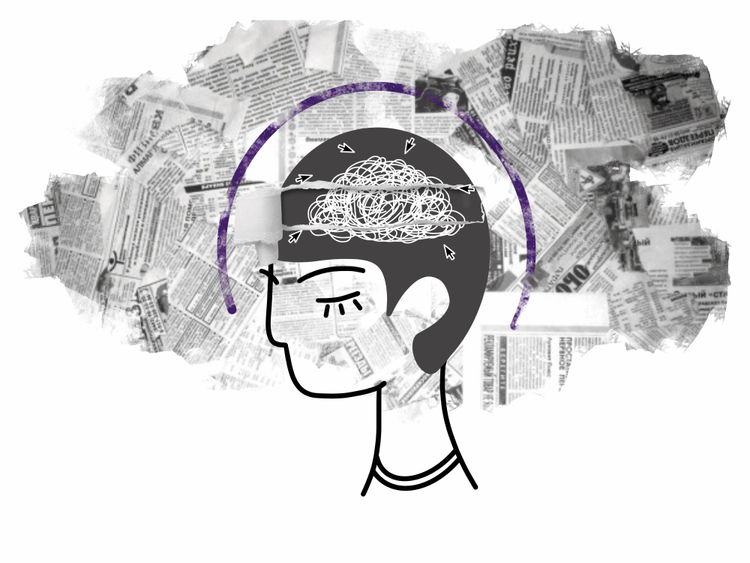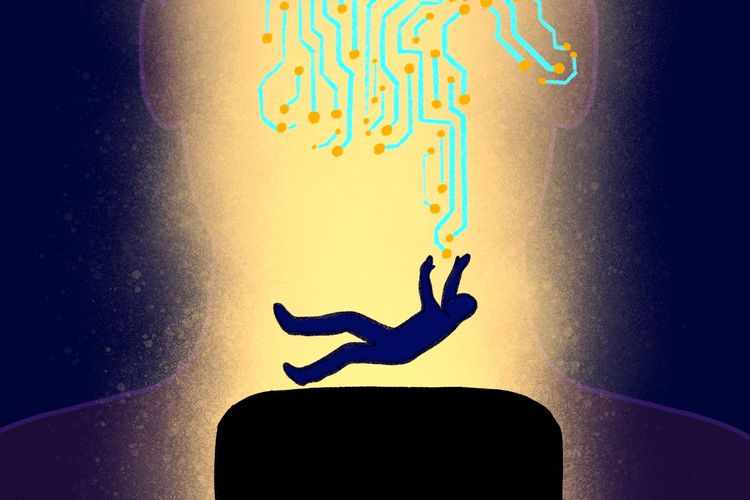Towards Technopoly: From Tools to Technocracy

Previously in the series: Chapter 1: The Judgement of Thamus
Summary: Chapter 2
In this chapter, Postman starts down the road to defining technopoly by placing it within a new taxonomy. Cultures, Postman says, can be divided into tool-using societies, technocracies, and finally, technopolies. His purpose in this chapter is to examine the character of tool-using cultures and to trace a line from them to the technocratic roots of the modern industrialized world.
Let’s begin with tools.
What makes a tool, a tool
Postman defines a tool as a technology invented to do one of two things: A) address a problem of urgent physical need (waterpower, windmills, the heavy plow); or B) serve the symbolic needs of art, politics, myth, ritual and religion (construction of castles and cathedrals, the mechanical clock, etc.).
Equally important as what tools were invented to do is what they were not intended to do. Generally subordinated to the culture itself (its traditions, religious commitments, and social organization), the technology of tool-using cultures did not attack the dignity/integrity of the cultures which invented them. At least, they were not intended to.
Postman qualifies this general definition with several exceptions that prove the rule he’s establishing. The subordination of tools to “theological assumptions served as a controlling ideology, and whatever tools were invented had, ultimately, to fit within that ideology.” But, he continues, although “such a theology or metaphysics provides order and meaning to existence, making it almost impossible for technics to subordinate people to its own needs,” it remains possible for tools to change a culture.
As Thamus showed us in the preceding chapter, tools can still upend societies because technology reconfigures what is possible. Postman offers the example of the 8th-Century invention of the stirrup:
“The stirrup made it possible to fight on horseback, and this created an awesome new military technology: mounted shock combat. The new form of combat, as Lynn White, Jr., has meticulously detailed, enlarged the importance of the knightly class and changed the nature of feudal society.”
The stirrup, like the mechanical clock after it, had unintended consequences that could not be accommodated by the dominant powers, traditions or governing ideologies. The new technology made it possible for new centres of influence to emerge. In the case of the stirrup, the knightly class seized control of church lands in Europe. The mechanical clock, likewise, was eventually used to place material (and financial) interests above all others.
Despite the caveats, Postman’s main point here is to acknowledge, while they can cause significant transformation, tools do not disrupt cultures as a matter of ideology. In other words, although tools can cause disruption, their invention within tool-using cultures is not designed to disrupt.
Tools + Ideology = Technocracy
Postman here transitions from defining tools and tool-using cultures to revealing the roots of technocracy. Recognizing that his taxonomy of tool-using cultures is imperfect, Postman argues that it is still worthwhile to distinguish between tool-using and technocratic cultures:
In a technocracy, tools play a central role in the thought-world of the culture. Everything must give way, in some degree, to their development. The social and symbolic worlds become increasingly subject to the requirements of that development. Tools are not integrated into the culture; they attack the culture. They bid to become the culture.
Modern technocracy, Postman suggests, begins with the first step toward disintegrating moral and intellectual concerns. German astronomer Johannes Kepler, in his New Astronomy, wrote, “Now as regards the opinions of the saints about these matters of nature, I answer in one word, that in theology the weight of authority, but in philosophy (science) the weight of Reason alone is valid.”
This is, Postman says, among the first calls for a buffer between moral and intellectual values, which is “a pillar of technocracy.” Still, Kepler, like Copernicus before him, was a thoroughly medieval man, and Kepler’s heliocentric theory still had room for God in it. Kepler himself compared the motive force of the Sun, “at rest and yet the source of motion,” to God as Creator and Sustainer. But the seeds were planted, and Galileo would seize upon the growing divide to challenge the reigning cultural authorities more directly.
In all this, it’s worth noting that knowledge of the physical world can increase alongside metaphysical commitments. Kepler’s faith could accommodate heliocentricity, and Postman points out that the medieval church was willing “to accept as hypotheses that the earth moves and the sun stands still.” Mainly because mathematicians were meant to formulate interesting hypotheses; they were not enemies of the church. The truth could be, and was, pursued before the triumph of science and technocracy. The science of the late 16th century was characterized by “a passion for exactitude.” Copernicus, Kepler, and Galileo’s “search for the mathematical laws of nature was, fundamentally, a religious quest,” as they believed in a God who was the designer, creator, and sustainer of all Creation. Even Descartes, who made a virtue of skepticism, “deduced his law of the immutability of motion from the immutability of God.”
The root of technocracy isn’t the transformative technologies themselves. Instead, it’s a conscious move from one possible objective of science to another, from truth to power. The pivot to power as the principal aim of the sciences — power over nature, for the improvement of the human condition — is first made explicitly by Francis Bacon. Postman calls Bacon the first man of the technocratic age, before whom we see little concern for progress aimed at enhancing “the happiness of mankind.” The nature of this happiness is left undefined, but we have a hint of it in Bacon’s declaration that “the real, legitimate, and only goal of the sciences is ‘the endowment of human life with new inventions and riches.’”
Bacon’s science continues to reign over culture today with its utilitarian view of knowledge, “in which resignation was cast out and God assigned to a special room.” In other words, the world ceased to be a given Creation to be explored and wondered at. The world became a field on which to exercise power and pursue progress. What had once been accepted as given, as a gift, was now raw material ripe for exploitation.
Postman doesn’t lament this transition completely, however. Technology has been a great friend, after all. He posits that through the technocratic outlook, “people came to believe that knowledge is power, that humanity is capable of progressing, that poverty is a great evil, and that the life of the average person is as meaningful as any other.” It seems likely that by the time the 19th century rolled around, “most people would not have traded their earthly existence for life in a godly, integrated tool-using culture.”
But it didn’t matter either way. “Addressing both those who were exhilarated by technocracy and those who were repulsed by it, Stephen Vincent Benét gave the only advice that made any sense. In John Brown’s Body he wrote:
If you at last must have a word to say,
Say neither, in their way, “It is a deadly magic and accursed,”
Nor “It is blest,” but only “It is here.”
Technopoly Today
As Postman brings us to technopoly’s threshold, I have a few quibbles to share that highlight his value as a guide, but also where he can be questioned and debated. Postman seems to want to avoid Thamus’ error above all and prizes balance. However, this leads him unavoidably to some oversimplifications.
Several objections to what he lists as virtues of the technocratic outlook came immediately to my mind. First, that the view of poverty as a great evil came with technocracy. To read it charitably, I would assume he means that the systematic means of alleviating poverty became available. There’s a case to be made that care for the poor already had a long cultural history in Europe, dating back to the advent of Christianity. Pieter van der Horst, in “How the Poor Became Blessed,” writes that in ancient Greece and Rome it was commonly believed that the poor were “more readily inclined to do evil; for that reason, their poverty was commonly seen as their own fault.” Therefore, “giving alms to the poor could not be seen as a virtue, as care for them was often regarded as a mere waste of resources.” It was the Judeo-Christian tradition that gave “charity in the sense of a communal obligation towards the needy,” to the West.
So while technocratic means may have enabled more extensive poverty relief, that the poor are ever the express beneficiaries of those means owes a debt to religious ethics, not technocracy. If technocracy has an ethic that we find humane, it was pulled from the soil of the integrated tool-using cultures it grew out of, and was not produced by technocratic ideology itself.
I could make a similar argument for the value of the average human life. Technocratic means may have been able to furnish the ordinary life with more “value” by way of inventions aiming for improvement, but those means did not teach people why each human life is sacred. Of course, preached ethics do not always amount to lived ethics, but that these ethics exist at all is certainly not thanks to a technocratic outlook.
Next in the series: From Technocracy to Technopoly (September 8)





Member discussion